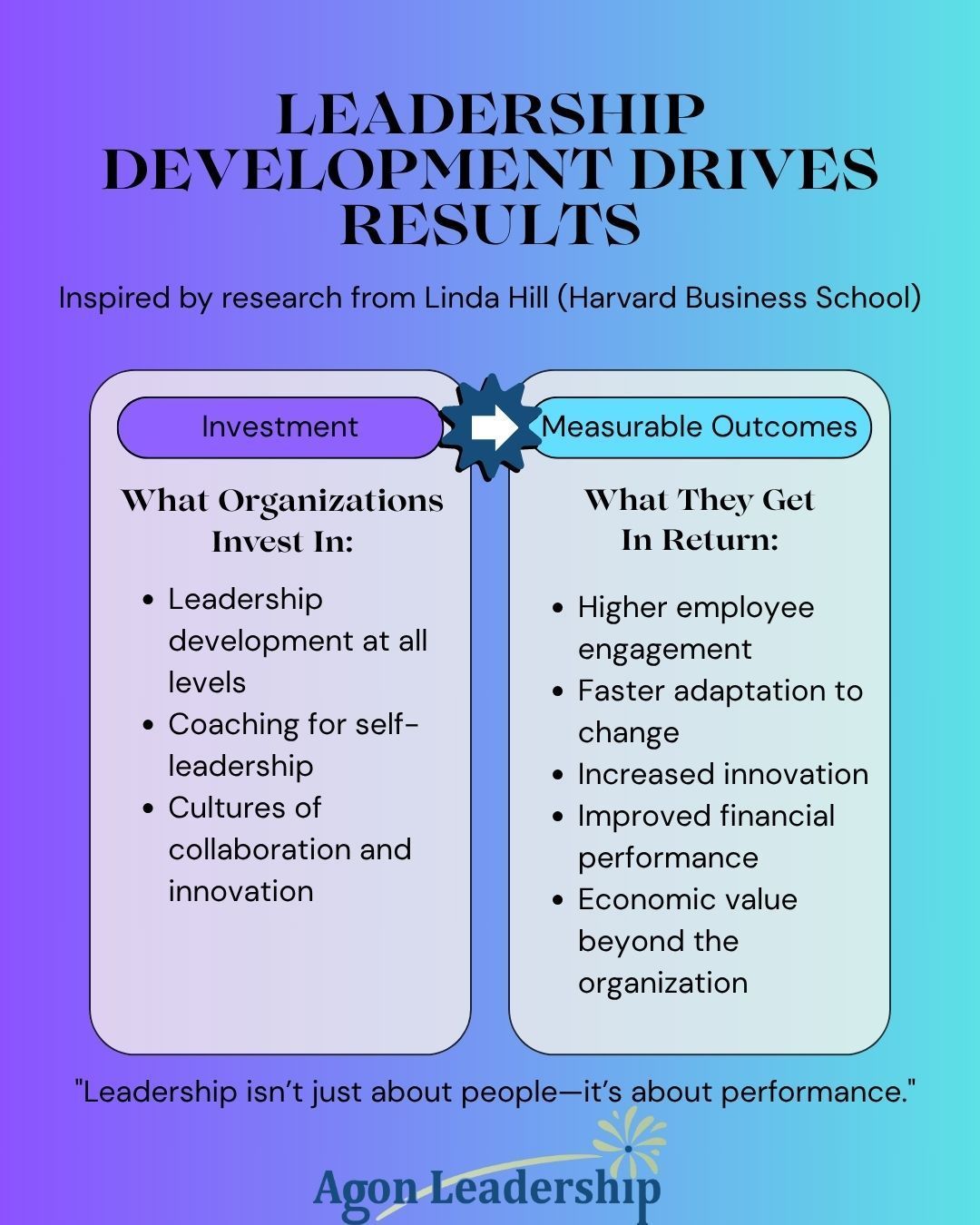Why Leadership Development Is a Business Strategy, Not Just a Perk

Inspired by the research of Linda Hill, Harvard Business School
When we talk about leadership development, it’s easy to think of it as a “nice to have”—something for high-potential individuals or executive teams. But according to Linda Hill from Harvard Business School, that mindset is outdated. Her research makes it clear:leadership development is directly tied to organizational performance and even broader economic outcomes.
Hill emphasizes that organizations investing in leadership aren’t just improving individuals—they’re building systems that foster innovation, agility, and resilience. In her view, leadership today is less about authority and more about creating environments where collaboration thrives, where diverse voices are heard, and where people feel safe to take smart risks. Click here for 5 Key Action Steps
One key outcome of this investment is stronger self-leadership. When people are equipped with the right tools and support, they begin to recognize and leverage their strengths. They build the confidence to volunteer for new challenges, contribute beyond their roles, and reach out when they need help. This kind of empowered behavior doesn’t just benefit the individual—it creates a ripple effect that strengthens teams and drives collective performance.
And here’s the kicker: companies that do this well outperform their peers. They’re more likely to weather disruption, adapt to change, and drive sustainable growth. In other words, leadership development isn't just about personal growth—it's a business strategy.
So, if leadership is still a line item buried in your HR budget, it might be time to move it to the top of your strategic agenda. Because when you invest in leadership, you’re not just shaping better leaders—you’re shaping a better future.

